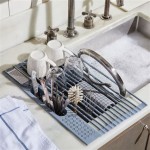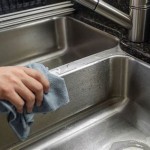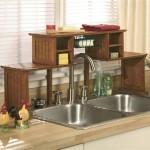Best Material for Bathroom Sinks: A Comprehensive Guide
Choosing the right bathroom sink can significantly impact the overall aesthetic and functionality of your bathroom. With a wide range of materials available, selecting the best option can be a daunting task. This comprehensive guide will delve into the advantages and disadvantages of popular bathroom sink materials, providing you with the necessary information to make an informed decision.
Ceramic
Ceramic is a classic choice for bathroom sinks due to its affordability, durability, and versatility. Ceramic sinks, often referred to as porcelain sinks, are known for their smooth, non-porous surfaces that resist staining and scratches. They are also relatively easy to clean, making them a practical option for busy households. Ceramic sinks come in a wide array of styles, colors, and finishes, offering ample design flexibility. However, ceramic sinks can be prone to chipping and cracking, especially if exposed to heavy impact.
Porcelain
Porcelain, a type of ceramic material, is renowned for its elegant and luxurious appearance. Porcelain sinks are typically thicker and more durable than standard ceramic sinks. They are also highly resistant to scratches, stains, and fading, making them ideal for high-traffic bathrooms. While porcelain sinks are generally more expensive than ceramic sinks, they offer superior durability and a timeless aesthetic.
Glass
Glass bathroom sinks offer a modern and sophisticated look, adding a touch of elegance to any bathroom. They are available in various colors, textures, and patterns, allowing for a wide range of design possibilities. Glass sinks are typically resistant to stains and scratches, and their smooth surfaces are easy to clean. However, glass sinks are more susceptible to chipping and cracking than other materials, making them less suitable for households with young children or frequent use.
Stone
Natural stone sinks, such as granite, marble, and limestone, bring a touch of luxury and sophistication to any bathroom. They are known for their unique patterns and rich colors, adding a natural beauty to the space. Stone sinks are durable and resistant to scratches, stains, and heat. However, they are typically more expensive than other materials and require regular sealing to prevent staining and damage. Stone sinks can also be heavy and require specialized installation.
Stainless Steel
Stainless steel sinks are a popular choice for their durability, easy maintenance, and modern aesthetic. They are highly resistant to scratches, stains, and rust, making them ideal for high-traffic and high-humidity environments. Stainless steel sinks are also known for their heat resistance and durability, making them a good choice for bathrooms with limited countertop space. However, stainless steel sinks can be prone to watermarks and may require regular cleaning to maintain their shine.
Solid Surface
Solid surface sinks are made from a mixture of acrylic and polyester resin, which are combined to create a non-porous, durable surface. They are typically available in a variety of colors and patterns, allowing for a wide range of design options. Solid surface sinks are known for their seamless construction, which eliminates cracks and crevices where dirt and bacteria can accumulate. They are also scratch and stain resistant, making them a practical choice for busy households.
Copper
Copper bathroom sinks are a unique and eye-catching choice, adding a touch of rustic charm to any bathroom. Copper is naturally antimicrobial and antibacterial, making it a hygienic option. Copper sinks are also durable and resistant to corrosion, although they may require regular cleaning to maintain their shine.
Acrylic
Acrylic sinks, also known as molded plastic sinks, are lightweight, affordable, and easy to clean. They are available in a wide range of colors and styles, offering versatility in design. Acrylic sinks are also relatively durable and resistant to scratches, making them a practical choice for busy households. However, acrylic sinks are not as scratch-resistant as ceramic or porcelain sinks, and they may require more frequent cleaning to maintain their smooth appearance.
Composite
Composite sinks are made from a blend of materials, such as acrylic, resin, and stone. They offer a combination of durability, affordability, and aesthetic appeal. Composite sinks are typically resistant to scratches, stains, and heat, making them a practical choice for busy households.
The best material for your bathroom sink will depend on your individual needs, preferences, and budget. By considering the advantages and disadvantages of each material, you can choose the option that best suits your bathroom's style and functionality. Ultimately, the ideal bathroom sink should be both beautiful and practical, seamlessly blending with the overall design of your space and providing years of reliable service.
Bathroom Sink Material Ing Guide Signature Hardware
Best Bathroom Sink Materials Ceramic Procelain More Zameen Blog
Best Bathroom Sink Materials Concrete Porcelain More Trueform
10 Best Bathroom Vanity Materials A Complete Guide To Choosing
A Guide To Materials And Finishes For Bathroom Design Cafe
Top 8 Types Of Wash Basins In India Jaquar
What Is The Best Material For Bathroom Cabinets Riluxa Com
What Is The Best Material For Bathroom Cabinets Comparison Of Several Commonly Used Materials
What Are The Best Materials For Bathroom Vanity Countertops
What Material Goes Well With A High End Stylish Wash Basin







